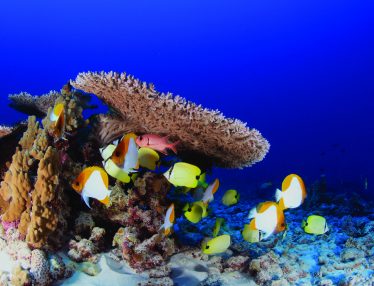Corals Could go it Alone
October 25, 2019

The world’s coral reefs are being drained of their color and their life due to conditions created by climate change. But if the future follows in the footsteps of the past, some corals will do fine in a warmer world.
They’re just not the type of corals you might expect. Research from The University of Texas at Austin has found that corals with a solitary streak — preferring to live alone instead of in reef communities — fared better than their group-dwelling relatives during a period of warming in Earth’s past that resembles climate change today.
The isolated lifestyles of these species could mean that coral ecosystems of the future could be bleak in comparison to the teeming reef communities of today.
“Although corals themselves might survive, if they’re not building reefs, that’s going to cause other problems within the ecosystem,” said Anna Weiss, who led the research and recently earned a Ph.D. from the Jackson School of Geosciences. “Reefs support really big, diverse communities.”
The corals themselves could be bleak too. Many of the surviving coral species hunt independently, rather than harboring and extracting nutrients from colorful algae that lend such breathtaking hues to reef corals. The study examined coral species that lived about 56 million years ago during the transition of the late Paleocene to the Early Eocene, a time interval that lasted about 200,000 years and that included spikes in temperature and atmospheric carbon dioxide. The research was published in the journal Paleoceanography and Paleoclimatology on Jan. 21, 2019. Weiss co-authored the paper with her adviser Rowan Martindale, an assistant professor at the Jackson School’s Department of Geological Sciences.
Back to the Newsletter